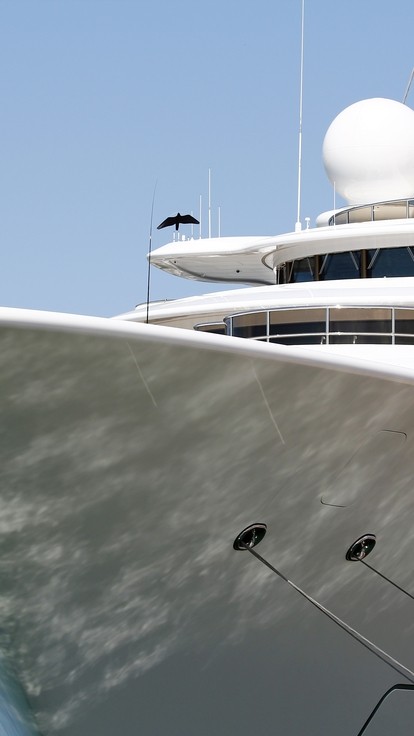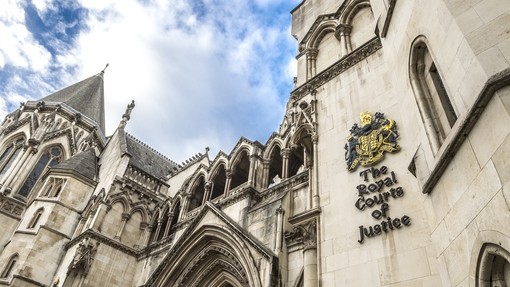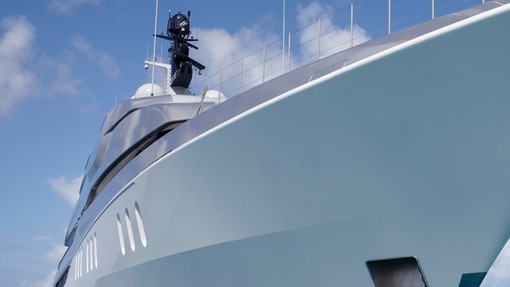Protecting an owner’s investment in superyacht construction projects

Details
Alex Teji examines the ways an owner can seek to mitigate their exposure to risk at the various junctures of a new-build project.
The process of designing and constructing a new superyacht is exhilarating, but it can also be a daunting one for the owner who is committing large sums of money to a project over a long period of time, typically paid by instalments that are triggered by particular milestones being reached. Often, the owner will not have dealt with the builder before, and even if they have, the same question arises: how can the owner contractually protect against the worst-case scenarios of builder bankruptcy, breach or loss of the vessel during construction?
Refund guarantees
Perhaps the most robust method of safeguarding early-payment instalments is refund guarantees, usually delivered against instalments up until the laying of the keel, this being the point at which the owner typically has title in the part-built vessel (see below). If title does not pass until a later stage (or even at delivery as is sometimes the case), it is important that the owner has some form of pre-delivery security until the transfer of title occurs. These guarantees are typically granted by banks or other financial institutions and should underwrite the builder’s contractual obligations to refund the owner.
The terms of the guarantee are important and it is preferable, where possible, to ensure that they can be triggered ‘on demand’. Far more usual, however, is the requirement for agreement or a final unappealable arbitration award or court order – which, depending on the jurisdiction, can take a considerable amount of time to obtain and can be costly to pursue. Depending on the cash reserves of the builder, refund guarantees can often be difficult and expensive to obtain, and the owner should have an early conversation with the builder about the availability, extent and cost of refund guarantees.
Corporate guarantees are sometimes given as an alternative to bank guarantees. As the name suggests, this type of guarantee is given by another commercial organisation, often the parent company of the subsidiary builder. Owners should be cautious when considering these as they will be only as secure as the company that is providing them. Jurisdiction of enforcement, sound financials and an established reputation are musts when considering such a form of security.
Guarantees need not stop on the payment of the final instalment of the contract price at delivery – performance guarantees are often requested to underwrite any failure of the builder to perform its warranty obligations during the warranty period.
Finally, in certain circumstances where no bank or corporate guarantees are available, escrow arrangements can be put together requiring the builder to place a commercially agreed portion of the sales price as it is paid into a stakeholder account, which can be drawn down on by the owner on the same trigger events as for guarantees, or released to the builder on successful delivery.
Progressive transfer of title
The contract should afford the owner progressive transfer of title in the vessel, and its systems and components, as they are integrated into the project. Such ownership rights are, in some jurisdictions, capable of public registration – helpful if the owner ever has to demonstrate such rights. Sometimes working alongside guarantees, sometimes complementing them, an owner should always have the contractual right to take away the vessel from the builder’s yard in the event of the builder’s default, with provisions protecting the owner’s costs and expenses in doing so.
Insurance provisions
Another careful consideration for owners should be to ensure the builder is contractually obliged to take adequate insurance coverage in respect of the vessel and any of the owner’s supplies delivered to the builder’s premises – more specifically that the owner is protected in the event of a partial or total loss, and that the provisions of the contract provide comprehensive protection to the owner, with no gaps in coverage.
Termination
Finally, the owner should be afforded the right to terminate the shipbuilding contract in specified circumstances – usually on breach (and failure to remedy that breach) by the builder or in the event of the builder’s bankruptcy – with clear notice provisions for serving a valid notice of termination and clear obligations on the builder to reimburse the owner for all sums paid pursuant to the contract. The owner should also seek to recover their additional losses occasioned by such a breach.
In conclusion
The availability, nature and extent to which refund guarantees tie in with the owner’s other contractual protections are all circumstantial and vary from project to project. Protecting the owner’s investment and title in a project is but one area where an owner’s lawyer will seek to improve the contract terms; other headline issues include intellectual property, confidentiality, delivery delay, performance inconsistencies and regulatory compliance – topics that are deserving of their own separate commentary in due course.




